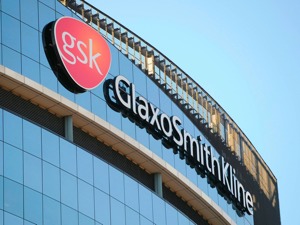
© TOBY MELVILLE/Reuters/Corbis
A document released today by the U.S. Food and Drug Administration (FDA) concludes that, as critics have claimed since 2006, the hugely popular diabetes drug Avandia (rosiglitizone) increases the risk for heart attack. The 765-page briefing document released today in anticipation of an advisory panel meeting on July 13-14 to determine whether the drug should be pulled from the market, includes several damning assessments of the drug, including criticisms of the major study that producer GlaxoSmithKline has pointed to suggesting Avandia’s safety.
The RECORD study, which was funded by GlaxoSmithKline and supposedly found no elevated risk for heart complications for Avandia patients, has already been criticized for including too few patients and yielding inconclusive results. Yet, according to FDA reviewer Dr. Thomas Marciniak, not only was the study poorly constructed, but far from proving Avandia’s safety, its results actually coincide with those of other investigations suggesting an increased risk for heart attack. In a memorandum dated June 14 of this year that is included in the briefing document, Marciniak wrote:
“Our summary is that RECORD was inadequately designed and conducted to provide any reassurance about the [cardiovascular] safety of rosiglitazone. The results do confirm and extend the recognized concerns regarding increased heart failure and [heart failure] deaths with rosiglitazone.”
Avandia, which gained FDA approval in 1999 for controlling blood glucose levels in diabetes patients, has been subject to increasing scrutiny over the years — and a back and forth battle between authors of studies that suggest that drug’s danger, and the manufacturer, which has repeatedly defended its safety. The first major study to suggest that the drug increases the risk for heart attack was published in 2006. A year later, another study echoed those findings. Yet, one month after the second critical assessment was published, GlaxoSmithKline came out with its own findings (the RECORD study currently in question), which concluded there was no elevated risk for heart attack associated with the drug. It began to appear that Avandia was going the way of the painkiller Vioxx, another blockbuster drug that was ultimately withdrawn from the market in 2004.
Following that wave of research in spring 2007, the FDA ultimately concluded that there was some elevated risk for heart attack associated with the drug, but kept it on the market, requiring GlaxoSmithKline to put a black box warning label on the product. Yet, earlier this year, Avandia was again under the microscope — this time wielded by the Senate Finance Committee, and in June of this year, two more studies were published that suggested Avandia’s cardiovascular risks. As Alice Park wrote for TIME:
“The bad news keeps coming for patients taking the controversial diabetes drug Avandia (rosiglitazone). Two new studies released Monday, June 28, confirm earlier data linking the drug to a higher risk of heart disease in diabetes patients.”
And based on the briefing document released today, it seems like the bad news may continue for GlaxoSmithKline’s Avandia. With the FDA now dismantling the major study used to defend Avandia’s safety, the drug’s proponents may want to brace themselves for a heated exchange during the advisory committee meeting on July 13-14. And, if critics such as Dr. Steven Nissen, a cardiologist at the Cleveland Clinic and author of two of the studies assessing Avandia’s risks, have their way, the drug will be subject to more than harsh criticism. As he emphatically told CNN recently:
“There are no unique benefits for this drug that are not provided by other diabetes medications… I want the FDA to order the company to withdraw the drug. The evidence is there, and it’s been there a long time. It’s a matter of having the political will to do it.”

